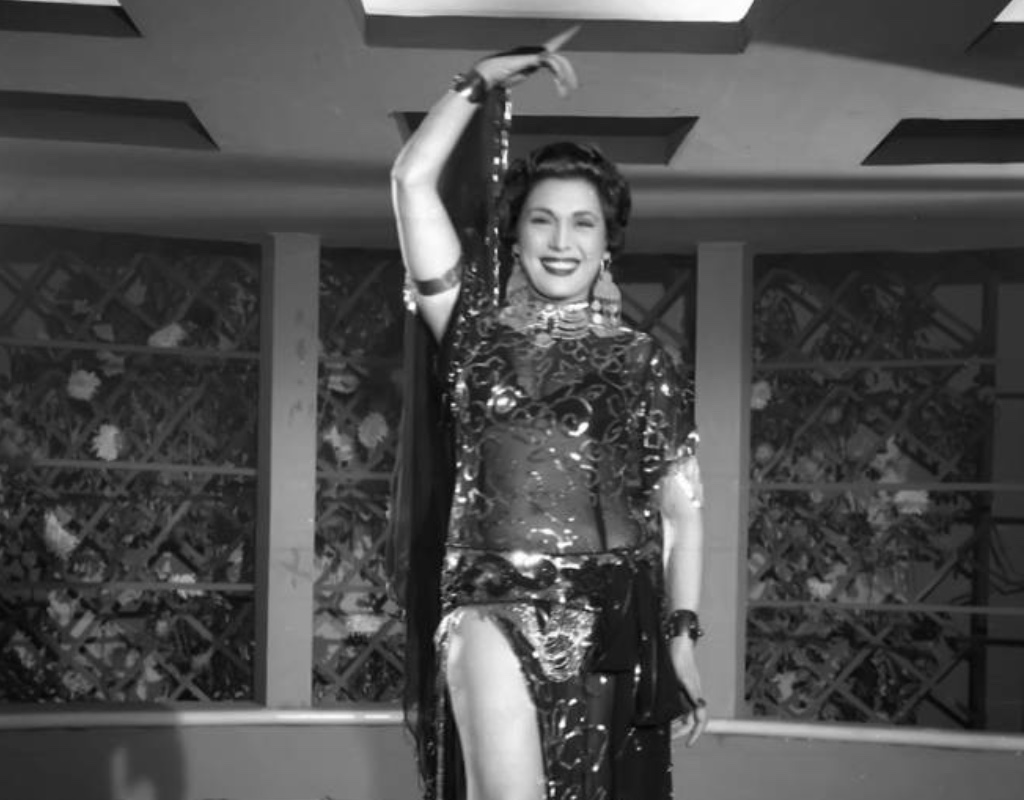Tahiya Karioka is an Egyptian household name in Egypt, an icon of Oriental dance in Egypt and the region at large. She is known for her loyalty to authentic oriental music and dance, free of Western influences. Her curvaceous body, deeply sultry gaze, and the rhythmic sway of her hips ensnared the attention of the Egyptian public for decades. With over 200 productions under herbelt, she was not only a talented dancer. Karioka was a gifted and skilled actress as well, having participated in films, series, and plays spanning multiple genres and adopting startlingly different roles. However, behind her tempting smile and star status wasa fierce woman who was neck-deep into the political affairs of Egypt, pre and post the 1952 revolution. Of humble origins Tahiya Karioka was born Badawiya Tahiya Mohamed Aly Karim, in the Egyptian province of Ismailia, during 1915. As a child, Badawiya showed talent in acting and dancing, both of which were frowned upon talents and activities, especially when the performer is a woman. Badawiya’s brother deeply opposed her dancing, in the name of her reputation and the family’s honor, and beat her repeatedly for it….
Behind the Stage Curtain: The Hidden Side of Oriental Dance Icon Tahiya Karioka
February 20, 2022




